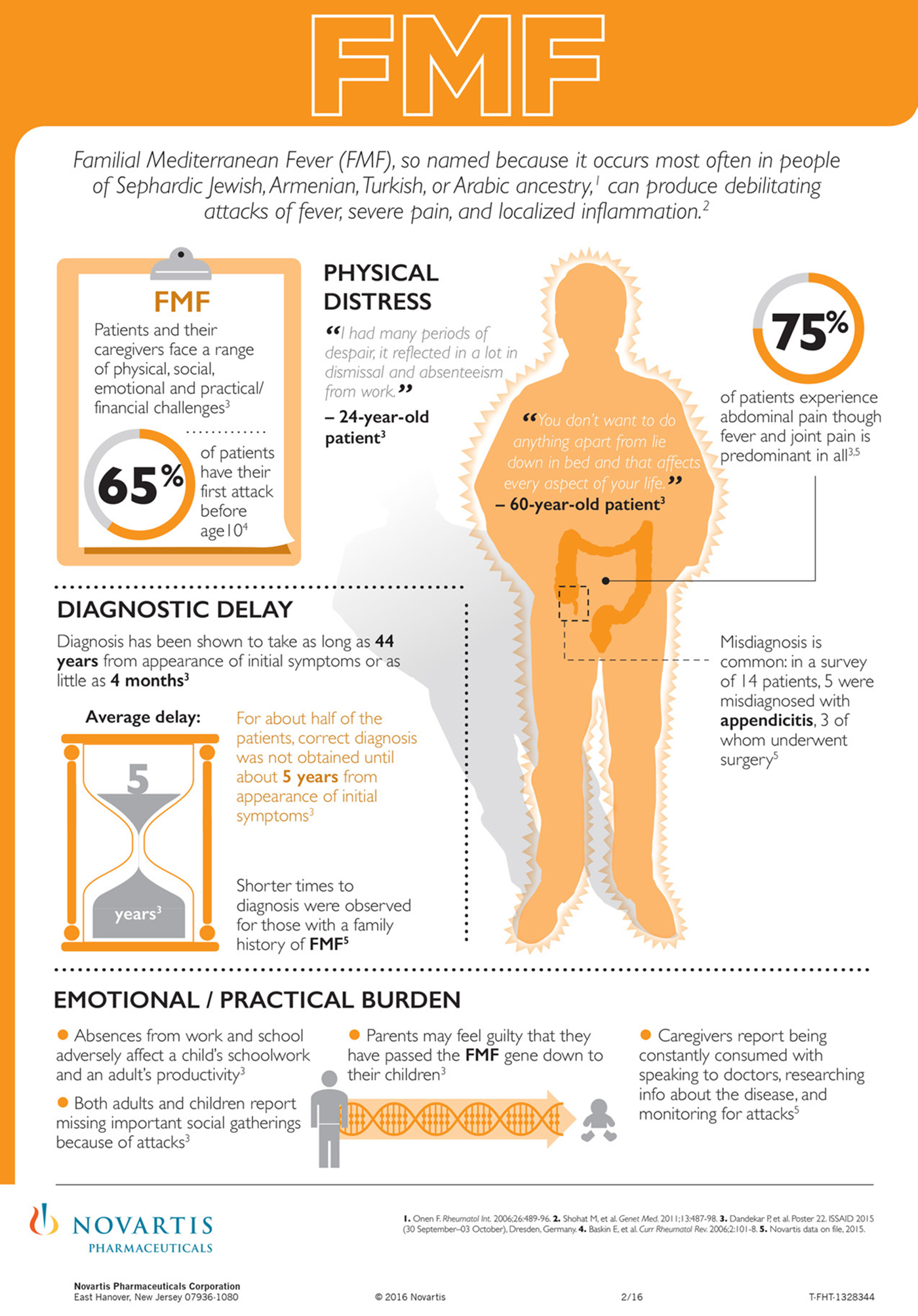Stuff My Doctor Says: Life with a Rare Autoinflammatory Disease
Autoinflammatory diseases, aka periodic fever syndromes, are rare diseases that most doctors have never seen or even heard of. The autoinflammatory classification of diseases came about right before the start of the 21st century, so it is a new concept to the medical community. The long list of possible autoinflammatory symptoms can include flares of fevers, joint swelling, stomach problems; and for some, chronic inflammation can lead to hearing loss, liver inflammation, and more. Many patients have spent decades undiagnosed, trying to find the cause of their long list of symptoms. Many see different specialists for their various symptoms. This leads to a lot of time spent with doctors.
All this time with medical professionals can lead to hearing all kinds of comments and opinions from them about their health, and rarity of their disease (for those who are lucky to get a diagnosis).
We asked our autoinflammatory patient community “What stuff have their doctors said to them?” Patients sent us these true quotes they have heard from medical professionals, proving that doctors also say the darndest things!
What doctors say when our illness confuses the doctors…
“You really have an odd set of symptoms and they don’t make sense.”
“I have no idea why that medication helped those symptoms.”
“Blood work is not supposed to change like this.”
“But he’s not supposed to hurt between flares.”
“Well, she’s different.”
“We are going to test him for the flu. But this is not the flu.”
“That can’t be related because it’s not in the literature.” Evidently the canon of medical knowledge is already closed.

What doctors say when they truly care… (We LOVE these doctors!)
“Call me if anything weird happens.”
“Let’s get him feeling better. What do you need from me? How can I help?”
“Let me just give you my personal cell phone number.”
“We will find out, eventually.”
“I have never been so nervous opening test results.”
“Well, I think you are absolutely correct about what is going on with your child. Doctors need to listen to the mothers-they are usually right.”
When I was leaving his office he said, “Could you please sit down again. I notice you’re not happy with the approach we discussed. Shall we discuss it again to see what you think we need to do so I can help him when he gets sick?” I just have to say that a doctor who is willing to find out might be even more important than one he thinks he knows all the answers.
Stuff doctors say that we’d like to forget…
“I doubt the fever was actually 106. We just never see fevers above 104. The body doesn’t allow for fevers to reach above that limit. Are you sure your thermometer is working correctly?” (Yes fevers in periodic fever syndromes can, and for some often, get above 104 F. Learn more here.)
“Maybe they are just growing pains.”
“Your child was in the hospital with high fever, CRP, ESR, WBC, and liver enzymes and couldn’t walk? That was just a daycare virus. We don’t need to do any more tests.”
“Are you sure you’re sick?”
“Nothing good comes from looking things up on the internet.”
“It’s just a virus.”
“This is a benign condition.” (Read more about how these diseases are NOT benign here.)
“I’m sure you weren’t reading the thermometer correctly”
“Getting your education on Dr. Google, I see.”
I was told I had Munchausen’s once because I had a 104 fever that wasn’t coming down with ibuprofen or Tylenol.
Stuff doctors say when they’ve never heard of our disease…
“Sorry we did not come in sooner; we were googling your condition to find out what it was.” (An ironic statement considering what some doctors have said to patients.)
“Your son sees a rheumatologist for a fever?” (These are systemic inflammatory diseases, which fall under the rheumatology specialty.)
“Autoinflammatory? You mean, autoimmune, correct?” (Click here to learn the difference between autoimmune and autoinflammatory diseases.)
“Can you spell that for me?”
“Periodic fever syndrome? That sounds made up. The doctors probably didn’t know what to tell you so they made something up.”
“Why does he see a rheumatologist for FMF? It’s a blood disorder, not a rheumatology disease.”
“Well, that’s not something we typically see with autoimmune diseases.” (That’s probably because these are not autoimmune diseases.)
In my case, after I handed him all my files and autoinflammatory studies etc., the doctor said, “Can I keep all this and see you back in a month so I can do some research of my own and talk to some colleagues.”
“Do you think we could find some DNA from your (long-deceased) father somewhere?”
“I hate to sound like Dr. House, but… it’s not lupus.”
“Get every resident in the building to the ER. We never get to see vasculitis this bad.”
“I’ve heard about you!” said by every new resident rheumatologist at every appointment.
Nurses while we were admitted for testing with no idea of the diagnosis said, “We came to see the mystery patient!”
When the doctor knows the patient is the expert…
When you tell the doctor you just wish a doctor would be well informed so you don’t have to be in charge of directing all your child’s medical care. And the doctor says, “but you’re so good at it.” I know he meant it as a compliment, but all I could think was, “but what if I die?”
“What other blood tests should you have done that I’m forgetting?”
“You sure know a lot about these diseases.”
“Are you in medicine too?”
“Really?! That treatment works? Let me write that down.”
The Autoinflammatory Alliance is a nonprofit organization dedicated to helping those with autoinflammatory diseases.
Donate now to help with awareness, education, and research for these rare diseases.














